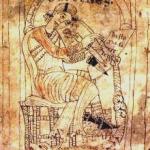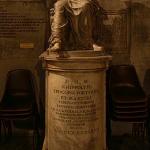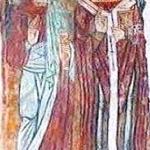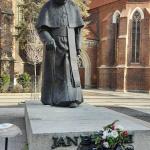Quebec City, Canada, Nov 4, 2013 / 12:20 pm (CNA/EWTN News).- The province of Quebec is moving towards a “closed secularism” that will harm the ability to teach Catholicism in high schools, says a principal leading a legal challenge against regulations of religion classes.
Paul Donovan, principal of Montreal’s Loyola High School, said he has no problem promoting pluralism in a province-mandated religion and ethics class, but he objects to provincial rules that bar explanations for religious belief.
“We just want to teach it from a Catholic point of view,” he told Canada’s National Post. “Quebec wants us to keep any explanation out of why people believe what they believe. You are supposed to say this is what they believe and that’s it.”
“The government requires that when you’re dealing with other religions that the teacher in the classroom completely disassociates himself from any religious perspective or religious value. So we can never say, 'As Catholics, we see this…'”
The Quebec government wants the course to be taught without regard to any religion, even in Catholic schools, a requirement Loyola High School is challenging in court.
A Quebec Superior Court sided with the school in 2010, while in 2012 an appeals court sided with the Quebecois government. The case goes to Canada’s Supreme Court next year.
Donovan said that under the present regulations, if a student asks questions about a Catholic perspective during the religion and ethics class, a Catholic school teacher is not allowed to answer.
“The government wants statements about religious belief to be absolute. They’re not to be argued. They cannot be seen as rational,” he said.
“In Catholicism … reason is the first step to faith. So we are not allowed to be who we are.”
He questioned whether a school course taught in this way could improve religious literacy, because “nothing is really being explained.”
The high school principal noted that the course has to be taught regardless of whether or not an institution receives state funds.
Donovan said the case could reflect future action under Quebec’s proposed Charter of Values, which would ban the wearing of religious symbols in public buildings and add other requirements to provincial law.
He said he favors an “open secularism,” in which the government has no preference for any religious or non-religious view. In this society, “all ideas and beliefs can develop and grow.”
However, in his view Quebec is moving toward a “closed” secularism in which government actively tries to secularize society and religion moves “out of the public square altogether.”
Donovan told the National Post that this attitude promotes the view that those with a religious outlook “can’t serve the common good.”















